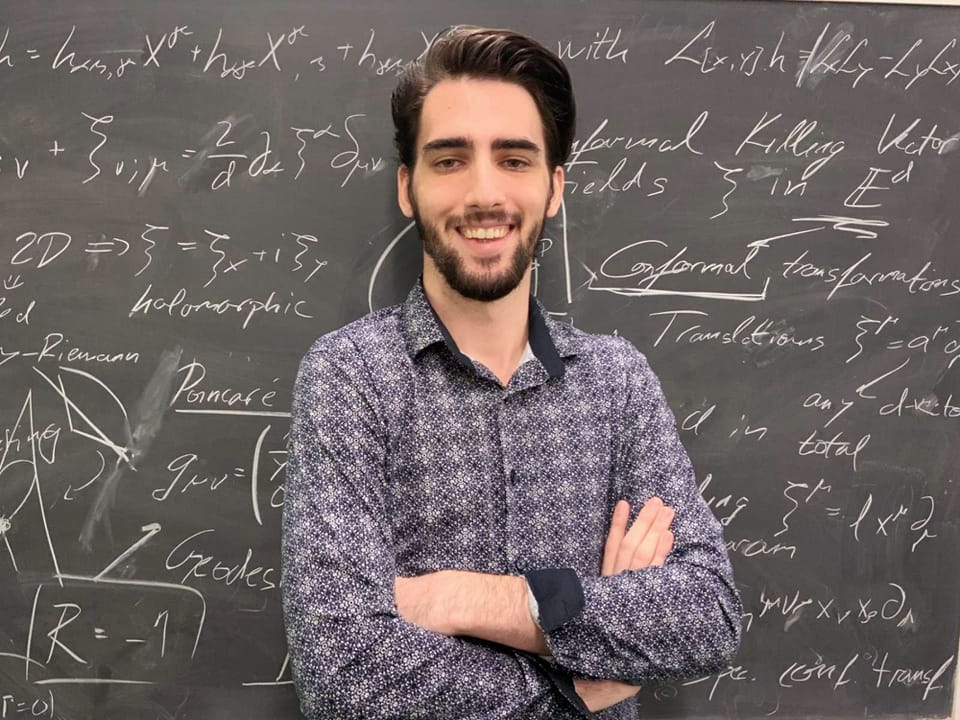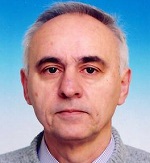- Project title: Development of practical molecular diagnostic skills of biologists for new challenges in the future (daleKOVID)
- Institutions participating in the project: Faculty of Sciences (Novi Sad)
- Status in the project: Coordinator
- Project leader: Željko Popović
- Project type: Ministry of Education, Science and Technological Development (MPNTR) – program activity Higher Education Development
- Period of realization: 2021-2022
You are browsing archives for
Author: PMF
Policy Club – Public Policy Analysis
In order to improve the practice of creating public policies based on facts and analysis, as well as expanding and strengthening the network of people who deal with public policies from different angles, a Policy Club has been established.
You can register and post your public policy analyses on the Policy Club website, and as an unregistered visitor you can browse, read and download all published analyses.
By joining the Policy Club, you become part of a community that deals with public policies in various fields, and you can contribute to making better decisions that affect citizens.
H2O PURE Nano-geopolymer based remediation techniques for groundwater purification (Concept of Sustainable material and residual Waste minimization)
- Project title: H2O PURE Nano-geopolymer based remediation techniques for groundwater purification (Concept of Sustainable material and residual Waste minimization)
- Project number: EU4TECH No: # 42
- Institutions participating in the project: Faculty of Sciences (Novi Sad)
- Status in the project: Owner
- Project leader: Nenad Grba
- Project type: EU4Tech Proof of Concept
- Period of realization: 2021-2022
Integration of paper-based nucleic acid testing methods into microfluidic devices for improved biosensing applications (IPANEMA)
- Project title: Integration of paper-based nucleic acid testing methods into microfluidic devices for improved biosensing applications (IPANEMA)
- Project number: 872662
- Institutions participating in the project: Biosens, Wageningen, INRAe, INESC MN, Anova-Plus, Ekofungi, PhotonicSys, EdenTech, Faculty of Sciences (Novi Sad)
- Status in the project: Partner
- Project leader: Ivana Gađanski (Jelica Simeunović, Faculty of Science team)
- Project type: H2020 MSCA-RISE
- Period of realization: 2021-2025
- Project website: www.ipanema2020.com
The use of biochar and recycled microplastics in the removal of specific pollutants from aqueous media – µPlastChar
- Project title: The use of biochar and recycled microplastics in the removal of specific pollutants from aqueous media – µPlastChar
- Project number: 142-451-2693/2021-01/2
- Institutions participating in the project: Faculty of Sciences (Novi Sad)
- Status in the project: Owner
- Project leader: Maja Lončarski
- Project type: APV long-term
- Period of realization: 2021-2024
New steroid derivatives – potential chemotherapeutics
- Project title: New steroid derivatives – potential chemotherapeutics
- Project number: 142-451-2667/2021-01
- Institutions participating in the project: Faculty of Sciences (Novi Sad)
- Status in the project: Owner
- Project leader: Marina Savić
- Project type: APV long-term
- Period of realization: 2021-2024
Trivko Kukolj and Nikola Goleš among the Awarded Best UNS Students in the Previous Academic Year
On December 28, 2021, the Rectorate of the University of Novi Sad presented awards to the best students at the University of Novi Sad: the Best Student of the University Award, the Student of the Generation Award in particular specialist areas and Awards for outstanding results in European and global competitions in the academic year 2020/2021. The decision to award the prizes was made by the University Senate on November 25, 2021.
Financial sponsor of the award The Best Student of the University is the Provincial Secretariat for Higher Education and Scientific Research, while the University of Novi Sad is the sponsor of the Student of the Generation Award in particular specialist areas.
 The Winner of the Best Student Award of the University of Novi Sad in the academic year 2020/2021 is Trivko Kukolj, who with a total average grade of 10.00 completed his primary academic studies in Physics Research in only three years, at the Faculty of Sciences, University of Novi Sad. At the same time, he actively participated in scientific research work in the country and abroad, and thus began to build strong ties in the world of physics at the age of only 20. He was admitted to further education at three prestigious universities at the same time: Cambridge, Oxford and Weizmann in Israel. He chose Israel and is already attending master’s studies there and continuing his journey through science, rushing towards new knowledge and achievements.
The Winner of the Best Student Award of the University of Novi Sad in the academic year 2020/2021 is Trivko Kukolj, who with a total average grade of 10.00 completed his primary academic studies in Physics Research in only three years, at the Faculty of Sciences, University of Novi Sad. At the same time, he actively participated in scientific research work in the country and abroad, and thus began to build strong ties in the world of physics at the age of only 20. He was admitted to further education at three prestigious universities at the same time: Cambridge, Oxford and Weizmann in Israel. He chose Israel and is already attending master’s studies there and continuing his journey through science, rushing towards new knowledge and achievements.
The winners of the Student of the Generation Awards in particular specialist fields are the best graduates of the University in the fields of science and mathematics, technical and technological sciences, social sciences, humanities and medical sciences, as well as art: Nikola Goleš from the Faculty of Sciences (student of the generation in the field of science), Sandra Šlegl from the Faculty of Technical Sciences (student of the generation in the field of technical-technological sciences), Reka Korhec from the Faculty of Economics in Subotica (student of the generation in the field of social sciences), Milica Stolica from the Faculty of Philosophy (student of the generation in the field of humanities), Ivana Govorčin from the Academy of Arts (student of the generation in the field of arts) and Isidora Semnic from the Faculty of Medicine (student of the generation in the field of medical sciences).
Enhancing Long Evolution of Cosmos-inspired Tourist Regional Attraction (ELECTRA)
- Project title: Enhancing Long Evolution of Cosmos-inspired Tourist Regional Attraction (ELECTRA)
- Project number: HUSRB/1903/31/0046
- Institutions participating in the project: Baja Astronomical Observatory Foundation and Faculty of Sciences (Novi Sad)
- Status in the project: Partner
- Coordinator for UNS: Kristina Bikit
- Project leader: Baja Astronomical Observatory Foundation, Hungary
- Project type: Interreg IPA CBC HU-SRB
- Period of realization: 01/09/2021-28/02/2023
Stevica Đurović elected Professor Emeritus of University of Novi Sad
 The Senate of the University of Novi Sad, at its session held on December 23, 2021, elected Prof. Dr. Stevica Đurović for Professor Emeritus of the University of Novi Sad.
The Senate of the University of Novi Sad, at its session held on December 23, 2021, elected Prof. Dr. Stevica Đurović for Professor Emeritus of the University of Novi Sad.
Professor Emeritus Club of University of Novi Sad was founded by the decision of the University Council on June 9, 2016, as an association of Professors Emeritus for the purpose of participating in various forms of academic work.
The Club is the first University Association of Professor Emeritus in the academic community in Serbia.
SMART Tourism Skills Initiative (SMARTOUR)
- Project title: SMART Tourism Skills Initiative (SMARTOUR)
- Project number: KA204-DE7CC81D
- Institutions participating in the project: E-CODE (Slovakia), Zavod Novi turizem (Slovenia), Szkola Glowna Turystyki i Hotelarstwa Vistula (Poland), European Wilderness Society, Verein zum Schutz der Europaischen Wildnis (Austria), University of Novi Sad (Serbia), Regional Development Agency with Business Support Centre for Small and Medium-sized Enterprises (Bulgaria), Univerzita Mateja Bela v Banskej Bystrici (Slovakia)
- Status in the project: Partner
- Project leader: E-CODE (Slovakia)
- Project type: KA204 – Strategic Partnerships for adult education
- Period of realization: 14.12.2020 – 13.03.2023
- Project website: smartour.e-code.sk
